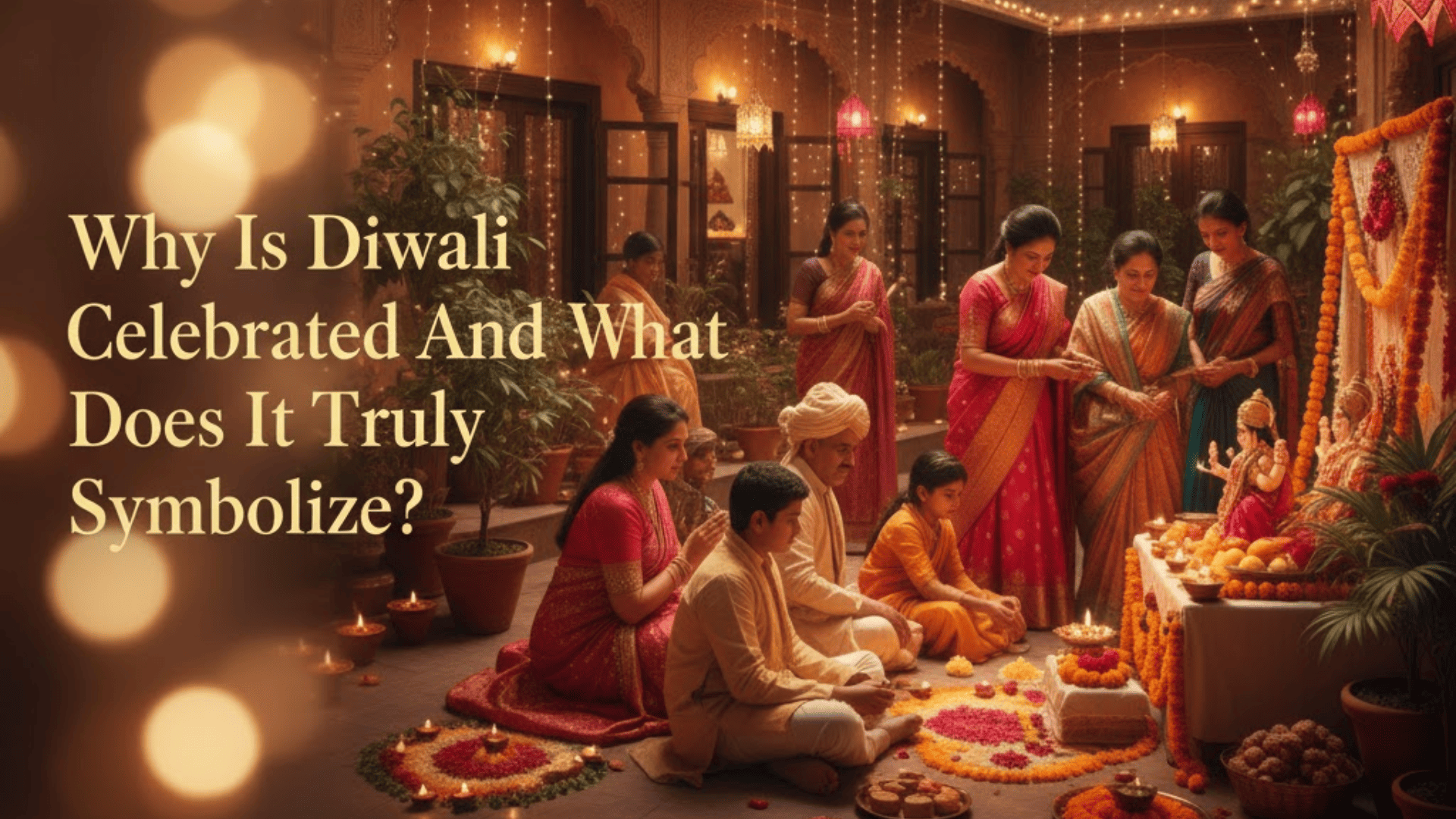Why Is Diwali Celebrated And What Does It Truly Symbolize?

Among the most cherished and luminous festivals in India, the celebration radiates the spirit of hope, renewal, and divine victory. Often referred to as the Festival of Lights, Diwali transcends religion and geography, uniting people through shared values of kindness, purity, and joy. Celebrated with grandeur across India and around the world, this sacred occasion reminds us that light always conquers darkness, and knowledge triumphs over ignorance.
The Mythological and Historical Significance
The origins of this festival are deeply rooted in Hindu mythology, representing multiple divine triumphs across regions and traditions. In North India, it commemorates Lord Rama’s return to Ayodhya after a 14-year exile and his victory over the demon king Ravana. In South India, it marks Lord Krishna’s victory over the tyrant Narakasura, symbolizing the end of cruelty and the dawn of justice.
Beyond these stories, the festival also celebrates Goddess Lakshmi, the deity of wealth and prosperity. On this auspicious day, homes are cleaned, adorned with lamps, and filled with prayers to welcome blessings, abundance, and spiritual clarity. Each flickering diya becomes a symbol of self-purification, an invitation for light to illuminate our hearts and actions.
Rituals That Celebrate Light and Renewal
The five-day celebration begins with Dhanteras, followed by Naraka Chaturdashi, Lakshmi Puja, Govardhan Puja, and Bhai Dooj. Each day carries its own unique spiritual meaning and set of rituals. The lighting of diyas, exchange of sweets, and decoration of homes with vibrant rangolis are not merely festive traditions but symbolic acts of spreading warmth, joy, and positivity.
The night of Diwali is the spiritual high point. Families gather for prayers and offer devotion to Goddess Lakshmi and Lord Ganesha, seeking wealth, wisdom, and protection from negativity. Firecrackers, once a symbol of celebration, have gradually evolved into a more eco-conscious approach, with people now favoring sustainable lights and mindful festivities.
Spiritual Essence of the Festival
At its core, Diwali teaches that true light does not come from fire or flame but from the awakening of inner goodness. The victory of light over darkness mirrors the human journey, conquering ignorance, ego, and fear through compassion and truth.
Many spiritual leaders interpret this festival as a time for self-reflection. It encourages individuals to discard negative emotions and embrace positivity, just as old lamps are replaced with new ones. It’s a reminder that every human being carries divine potential capable of radiating light even in the darkest moments.
Cultural Unity and Global Celebration
The celebration’s universal appeal has made it a symbol of cultural unity. Across India, every state adds its own flavor—from Bengal’s worship of Goddess Kali during Diwali to Maharashtra’s focus on business prosperity, and regions observing Chhat Puja with devotion to the Sun God. Beyond India, countries like Singapore, the UK, and the United States celebrate these festivals with equal enthusiasm, highlighting how Indian traditions continue to connect global communities.
In the diaspora, these celebrations, including Deepawali, become a link to heritage, offering moments to teach younger generations the values of gratitude, discipline, and faith. They foster a sense of belonging and continuity, even in faraway lands, proving that the light of tradition and devotion can shine across any distance..
You can also watch: Unlock Your Business Success with AstroLive Experts
Conclusion
Deepawali is more than a festival of lights; it is a timeless reminder of the triumph of good over evil, hope over despair, and knowledge over ignorance. Its rituals, stories, and symbolism collectively inspire people to illuminate their inner world and share that brightness with others. Whether celebrated in a quiet home temple or under the dazzling city skyline, the message remains unchanged where there is light, there is life, and where there is love, there is divine presence.
FAQs
Q1. Why is Diwali considered the Festival of Lights?
Diwali symbolizes the victory of light over darkness and knowledge over ignorance. Lighting diyas and candles represents dispelling negativity and inviting positivity, wisdom, and spiritual clarity into life.
Q2. What are the main rituals of Diwali and their significance?
The five-day celebration includes Dhanteras, Naraka Chaturdashi, Lakshmi Puja, Govardhan Puja, and Bhai Dooj. Each ritual emphasizes devotion, gratitude, and family bonding, while promoting spiritual awareness, prosperity, and unity.
Q3. How can modern celebrations stay meaningful and eco-friendly?
By embracing sustainable practices such as using eco-friendly diyas, natural rangoli colors, and minimal waste, modern Diwali celebrations retain spiritual essence while promoting environmental harmony.
- Art
- Causes
- Crafts
- Dance
- Drinks
- Film
- Fitness
- Food
- Spellen
- Gardening
- Health
- Home
- Literature
- Music
- Networking
- Other
- Party
- Religion
- Shopping
- Sports
- Theater
- Wellness






